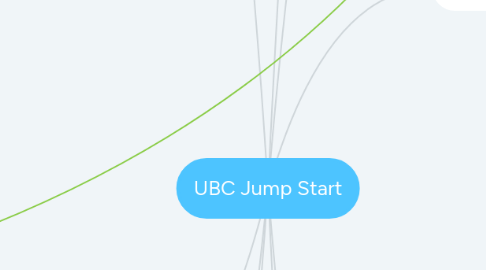
1. Key activities
1.1. Academic
1.1.1. Learning Communities
1.1.1.1. groups of 10-15 students
1.1.1.1.1. same faculty
1.1.1.2. each group has a faculty fellow
1.1.1.3. spend time learning about university academics
1.1.1.3.1. how to study
1.1.1.3.2. how to take notes
1.1.1.3.3. importance of office hours
1.1.1.3.4. manage expectations about grades
1.1.2. Digital opportunity
1.1.2.1. what
1.1.2.1.1. virtual lectures
1.1.2.1.2. Academic
1.1.2.2. how
1.1.2.2.1. set up group Skype/Google chats with professors
1.1.2.2.2. webcast lectures
1.1.2.3. cost
1.1.2.3.1. minimal
1.2. Social
1.2.1. attend events
1.2.1.1. pre-season sports games
1.2.1.2. movies
1.2.2. karaoke nights
1.2.3. Talent show
1.2.4. Digital opportunity
1.2.4.1. what
1.2.4.1.1. Social events
1.2.4.2. how
1.2.4.2.1. plan online "meet ups" for new students
1.2.4.3. cost
1.2.4.3.1. minimal
1.3. Campus tours
1.3.1. visit key points of interest
1.3.2. map out routes to classes
1.3.3. visit libraries
1.3.4. visit student support service locations
1.3.5. Digital opportunity
1.3.5.1. what
1.3.5.1.1. Campus tours
1.3.5.2. how
1.3.5.2.1. website
1.3.5.2.2. virtual reality program
1.3.5.3. cost
1.3.5.3.1. could be minimal
1.4. Resource fairs
1.4.1. parent
1.4.1.1. student resources
1.4.1.1.1. health
1.4.1.1.2. safety
1.4.2. student
1.4.2.1. student resources
1.4.2.1.1. health
1.4.2.1.2. safety
1.4.2.1.3. involvement
1.4.3. Digital opportunity
1.4.3.1. what
1.4.3.1.1. Resource fair
1.4.3.2. how
1.4.3.2.1. set up microsite where students can explore/watch videos/ask questions
1.4.3.3. cost
1.4.3.3.1. could be costly in both $$ and time
1.5. Parent lecture
1.5.1. talk about UBC
1.5.2. manage expectations
1.5.3. instill confidence
1.5.4. alleviate concerns
1.5.5. Digital opportunity
1.5.5.1. what
1.5.5.1.1. offer live stream of event
1.5.5.2. how
1.5.5.2.1. via Facebook live
1.5.5.2.2. via webcast
1.5.5.3. cost
1.5.5.3.1. minimal
2. Key resources
2.1. People
2.1.1. Faculty
2.1.1.1. work with students
2.1.2. Staff
2.1.2.1. plan/operationalize program
2.1.3. Student leaders
2.1.3.1. work with faculty + students
2.2. Spaces
2.2.1. Residence stream
2.2.1.1. Living accommodations
2.2.1.1.1. student housing
2.2.2. Commuter stream
2.2.2.1. Collegia spaces
2.2.3. Learning spaces
2.2.3.1. Classrooms
2.2.3.2. Labs
2.2.3.3. Lecture halls
2.3. Online marketing tools
2.3.1. CRM emails
2.3.2. Blog
2.3.3. E-newsletters
2.4. Printed marketing tools
2.4.1. brocure
2.4.2. Admit guide
3. Key partners
3.1. student recruiters
3.1.1. inform prospective/new students about program
3.1.1.1. answer questions
3.2. high school counsellors
3.2.1. inform prospective/new students about program
3.2.1.1. answer questions
3.3. Prospective Student Communications
3.3.1. promote/market program
3.3.1.1. new/prospective students
3.3.1.1.1. via CRM emails, blog + social media
3.4. Faculties
3.4.1. lead academic part of program
3.4.2. support is critical to program's success
3.5. Student Housing
3.5.1. provide + manage living spaces for residence students
3.5.1.1. manage registration system + payments
3.6. UBC Collegia
3.6.1. provide + manage space for commuter students
4. Cost structure
4.1. Cost driven
4.1.1. Expenses
4.1.1.1. Printed materials
4.1.1.1.1. marketing
4.1.1.1.2. program
4.1.1.2. Staff
4.1.1.2.1. salaries
4.1.1.3. Food
4.1.1.3.1. meals for staff + participants
4.1.1.4. Transportation
4.1.1.4.1. airport shuttles
4.1.1.4.2. some transport to off-campus events
5. Customer segments
5.1. First-year, direct entry students
5.1.1. domestic
5.1.1.1. living on campus
5.1.1.2. living off campus
5.1.2. international
5.1.2.1. living on campus
5.1.2.2. living off campus
5.2. Parents
5.2.1. domestic
5.2.2. international
6. Value propositions
6.1. Meet people + make friends
6.1.1. other first year students
6.1.2. faculty
6.1.3. staff
6.1.4. upper year students
6.2. Learn how to learn at UBC
6.2.1. learn about University academics
6.2.2. ease into larger lecture halls/classrooms
6.2.3. "mock" assignments
6.3. Get to know campus and Vancouver
6.3.1. practice getting to classes
6.3.2. practice commute
6.3.3. visit downtown vancouver
6.3.4. discover campus spaces
6.3.4.1. coffee shops
6.3.4.2. restaurants
6.3.4.3. libraries
6.3.4.4. entertainment
6.3.4.4.1. museums
6.3.4.4.2. gardens
6.3.4.4.3. theatres
6.3.4.5. study spaces
6.4. Take care of essentials
6.4.1. set up bank accounts
6.4.2. buy text books
6.4.3. set up cell phone plan
6.4.4. move into residence early
6.4.4.1. set up your room
7. Customer relationships
7.1. Supportive
7.1.1. students
7.1.1.1. introduce academic concepts of University
7.1.1.2. build relationships with senior students
7.1.1.3. Normalize feelings of nervousness, fear
7.1.1.4. build relationships with faculty
7.1.1.5. help students feel welcome
7.1.2. parents
7.1.2.1. alleviate worries
7.1.2.2. reassure about safety
7.1.2.3. help them "let go"
7.2. Personalized
7.2.1. 1-1 support
7.2.2. Faculty gets to know students by name
7.2.3. students grouped based on field of study/facuty
7.3. Digital
7.3.1. offer online options for programming
7.3.1.1. Academic
7.3.1.2. Social
8. Channels/program delivery
8.1. In person event
8.1.1. Residence students
8.1.1.1. live in student housing
8.1.1.1.1. meals and accommodation included
8.1.2. Commuter students
8.1.2.1. live off campus
8.1.2.1.1. 9-5 each day
8.1.2.1.2. Lunch included
8.2. Digital
8.2.1. Participant newsletters
8.2.1.1. sent weekly 4 weeks leading up to program
8.2.1.2. key dates and information
8.2.1.2.1. what to pack
8.2.1.2.2. what to expect
8.2.1.2.3. sign up for events
8.2.1.2.4. schedules
8.2.2. Program Facebook page
8.2.2.1. meet other participants
8.2.2.1.1. keep in touch
8.2.2.2. program updates/reminders
8.2.2.2.1. events
8.2.2.2.2. sign up for activities
8.2.2.2.3. messages from staff/faculty
8.2.3. Program App??
8.2.3.1. could house personalized info
8.2.3.1.1. schedule
8.2.3.1.2. messaging for Learning Community
8.2.3.1.3. keep track of resources
8.2.3.2. cost
8.2.3.2.1. could be costly to develop
9. Revenue streams
9.1. Registration fees
9.1.1. Commuter
9.1.1.1. $75
9.1.2. Residence
9.1.2.1. $500
9.2. University budget funding
9.2.1. covers staffing and program costs

